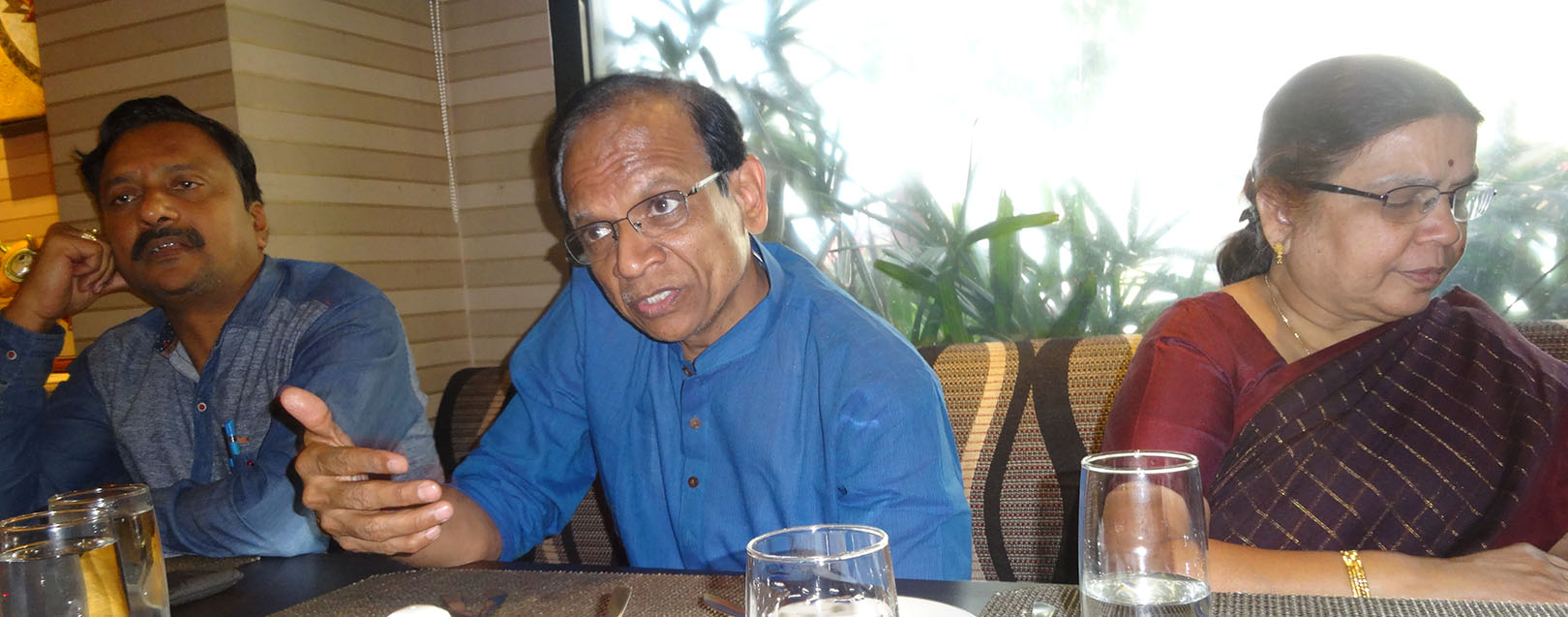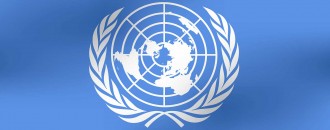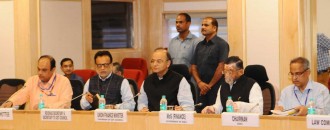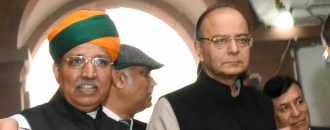
Cash economy contracted by 40%: Anil Bokil on demonetisation
Sneha Gilada
- A social security scheme that ensures a minimum grant to everybody living under poverty line
- A tax-lesseconomy that removes all motivation to evade tax
- A limit on cash transactions beyond which only bank transactions will have legal protection
- Withdrawal of all high value currency notes leaving onlyup to Rs 50 of notes in the cash economy
- Astandard 2% transaction cost levied by the government on all banking transactions uniformly.
These tenets form the crux of radical financial reform proposed by NGO Arthakranti Sansthan, which has recently come into limelight as the think-tank behind the idea of demonetisation.
Anil Bokil, speaking on behalf of Arthakranti Sansthan, said that the cleansing of the economy is a long process which has just begun with the demonetisation drive. "This is not a development model meant to boost growth. It is a correction model adopted as a remedy to the long standing menace of corruption, propelled by a cash economy, that allows for unaccounted use of money for corrupt practices like trafficking, terrorism etc," he said, dismissing any questions of the note ban impact on growth and GDP.
It may be conjectured that remonetisation will cancel out any push that the note ban might have given to a less-cash India. But according to figures disclosed by RBI, which were used as a reference by Anil Bokil, only 60% of the demonetised currency has been remonetised. As detailed by Urjit Patel to the Parliamentary Standing Committee on Finance, 15.44 lakh crore worth of currency was demonetised while only 9.2 lakh crore has been put back in circulation. We now have a cash economy contracted by 40%, making a significant rise in digital transactions evident.
Talking supportively of the government's efforts to bring change, Anil Bokil condemned the media and the opposition for making evaluations and deeming demonetisation a failure at such an early stage. "Cleansing of the economy is a long process. The government must be allowed some leeway and time to bring about the intended change. Constructive criticism is always appreciated, but that's different from outright rejection and pessimism," he said.
The fact that Supreme Court hasn't challenged the legal validity of such an initiative proves that it doesn't go against the spirit of democracy. "There haven't been any instances of mass protests or demonstrations by the people, which shows that the inconvenience caused has been presented in an exaggerated manner," Anil Bokil said in response to hardships borne by the common people due to demonetisation.
Talking of India's potential for development, Anil Bokil said, "India is a dream investment destination backed by a great demographic dividend and a largely English speaking population. A strong democracy also gives it an edge over China. But India's poor rankings in the Corruption Perception Index (CPI) are a major hindrance to growth. Uprooting corruption from ground level needs tough measures, which aren't options anymore, but a compulsion."
Arthakranti's revolutionist economic ideas have been in the public domain for about two decades, and have received audience in the highest echelons of the government, including prominent power wielders like Manmohan Singh and Pratibha Patil. An unthinkable reformist proposal like that of Arthakranti's can now see hope at the end of the tunnel, with the implementation of demonetisation by PM Narendra Modi.
This proposal markets itself as a 'painless' taxation structure which shall cut off all motivation for tax evasion, and ensure a healthier revenue stream for the government. To quote Anil Bokil in this regard, "Indian government receives tax to the tune of 14% of GDP, far lower than most other countries. The existing taxation regime is fundamentally flawed and serves neither the government, nor the people."






 to success.
to success.